Filter by

Genius Envy: Women Shaping French Poetic History, 1801-1900
In Genius Envy Adrianna M. Paliyenko uncovers a forgotten past: the multiplicity and diversity of nineteenth-century French women’s poetic voices. Conservative critics of the time attributed genius to masculinity and dismissed the work of female authors as “feminine literature.” Despite the efforts of leading thinkers, critics, and historians to erase women from the pages of literary hist…
- Edition
- -
- ISBN/ISSN
- 9780271077086
- Collation
- -
- Series Title
- -
- Call Number
- 301 PAL g
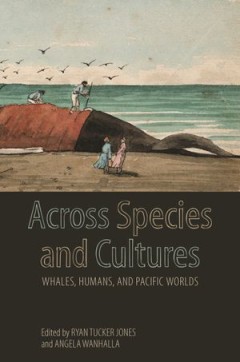
Across species and cultures (EPUB): Whales, Humans, and Pacific Worlds
More than any other locale, the Pacific Ocean has been the meeting place between humans and whales. From Indigenous Pacific peoples who built lives and cosmologies around whales, to Euro-American whalers who descended upon the Pacific during the nineteenth century, and to the new forms of human-cetacean partnerships that have emerged from the late twentieth century, the relationship between the…
- Edition
- -
- ISBN/ISSN
- 9780824892142
- Collation
- -
- Series Title
- -
- Call Number
- 301 ACR a
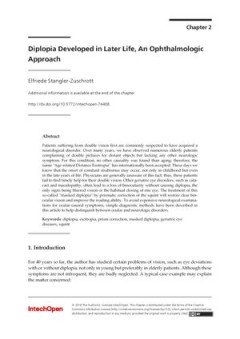
Diplopia Developed in Later Life, An Ophthalmologic Approach
Patients suffering from double vision first are commonly suspected to have acquired a neurological disorder. Over many years, we have observed numerous elderly patients complaining of double pictures for distant objects but lacking any other neurologic symptom. For this condition, no other causality was found than aging; therefore, the name “Age-related Distance Esotropia” has international…
- Edition
- -
- ISBN/ISSN
- 9781789237603
- Collation
- -
- Series Title
- -
- Call Number
- -
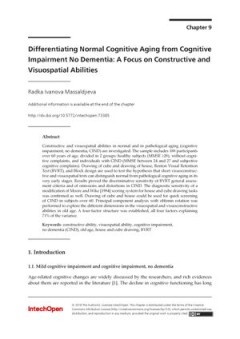
Differentiating Normal Cognitive Aging From Cognitive Impairment No Dementia …
Constructive and visuospatial abilities in normal and in pathological aging (cognitive impairment, no dementia, CIND) are investigated. The sample includes 188 participants over 60 years of age, divided in 2 groups: healthy subjects (MMSE ≥28), without cognitive complaints, and individuals with CIND (MMSE between 24 and 27 and subjective cognitive complains). Drawing of cube and drawing of ho…
- Edition
- -
- ISBN/ISSN
- 9781789232523
- Collation
- -
- Series Title
- -
- Call Number
- -
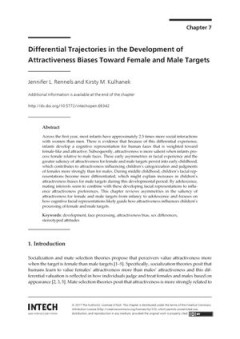
Differential Trajectories in the Development of Attractiveness Biases Toward …
Across the first year, most infants have approximately 2.5 times more social interactions with women than men. There is evidence that because of this differential experience, infants develop a cognitive representation for human faces that is weighted toward female-like and attractive. Subsequently, attractiveness is more salient when infants process female relative to male faces. These early as…
- Edition
- -
- ISBN/ISSN
- 9789535135814
- Collation
- -
- Series Title
- -
- Call Number
- -
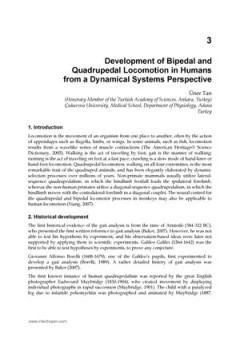
Development of Bipedal and Quadrupedal Locomotion in Humans from a Dynamical …
Development of Bipedal and Quadrupedal Locomotion in Humans from a Dynamical Systems Perspective
- Edition
- -
- ISBN/ISSN
- 9789535106104
- Collation
- -
- Series Title
- -
- Call Number
- -
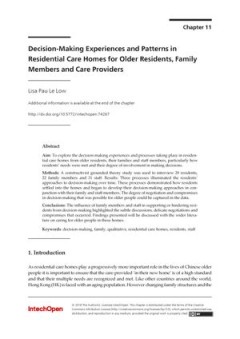
Decision-Making Experiences and Patterns in Residential Care Homes for Older …
Aim: To explore the decision-making experiences and processes taking place in residential care homes from older residents, their families and staff members, particularly how residents’ needs were met and their degree of involvement in making decisions.
- Edition
- -
- ISBN/ISSN
- 9781789232523
- Collation
- -
- Series Title
- -
- Call Number
- -

Making Room for People
Making Room for People elaborates on preferences in housing. It explores how users, occupants, and citizens can express their needs, searching for the enhancement of individual choice and control over their residential environment, and the predicted positive spin-off’s for urban collectives. The central question is: What are the conditions under which an increase of people’s choice and voic…
- Edition
- -
- ISBN/ISSN
- 9789085940326
- Collation
- -
- Series Title
- -
- Call Number
- -
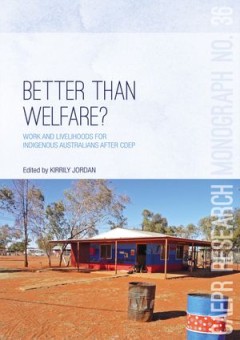
Better Than Welfare? : Work and livelihoods for Indigenous Australians after …
The end of the very long-standing Community Development Employment Projects (CDEP) scheme in 2015 marked a critical juncture in Australian Indigenous policy history. For more than 30 years, CDEP had been among the biggest and most influential programs in the Indigenous affairs portfolio, employing many thousands of Aboriginal and Torres Strait Islander people. More recently, it had also become …
- Edition
- -
- ISBN/ISSN
- 9781760460280
- Collation
- -
- Series Title
- Research monograph (Australian National University. Centre for Aboriginal Economic Policy Research) ; no. 36
- Call Number
- 331.639 915 BET
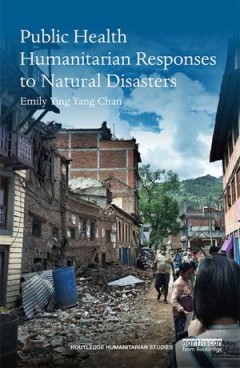
Public Health Humanitarian Responses to Natural Disasters
The pressure of climate change, environmental degradation, and urbanisation, as well as the widening of socio- economic disparities have rendered the global population increasingly vulnerable to the impact of natural disasters. With a primary focus on medical and public health humanitarian response to disasters, Public Health Humanitarian Responses to Natural Disasters provides a timely critica…
- Edition
- -
- ISBN/ISSN
- 1317357442
- Collation
- -
- Series Title
- -
- Call Number
- -
 Computer Science, Information & General Works
Computer Science, Information & General Works  Philosophy & Psychology
Philosophy & Psychology  Religion
Religion  Social Sciences
Social Sciences  Language
Language  Pure Science
Pure Science  Applied Sciences
Applied Sciences  Art & Recreation
Art & Recreation  Literature
Literature  History & Geography
History & Geography